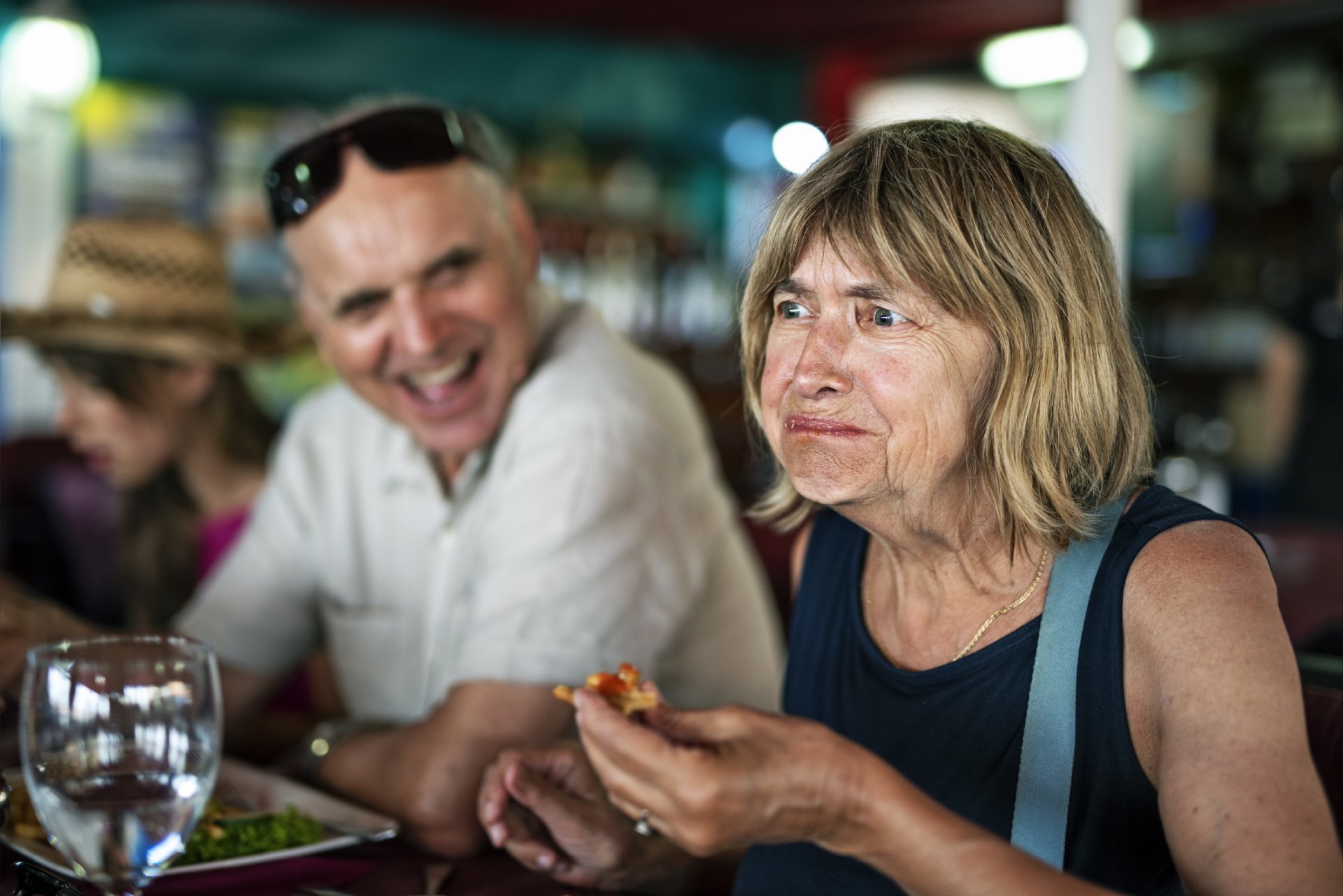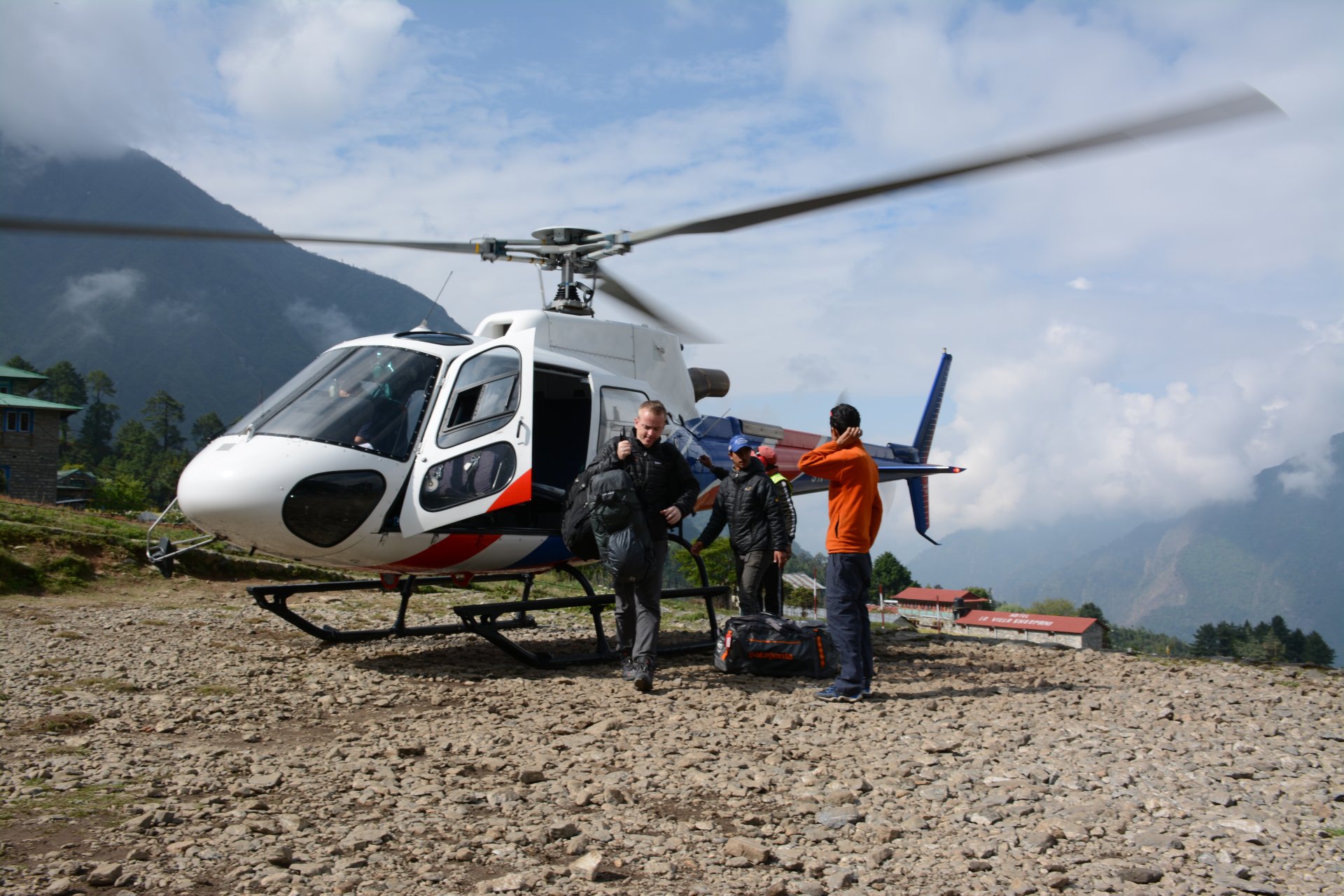Article Highlights
- Safety First: Traveling to France for the 2024 Olympics? Watch out for scams, petty crime, and potential terror threats.
- Traffic Troubles: Navigating Paris during the Olympics might mean facing crowded metros, possible strikes, and road closures.
- Accommodation Angst: Expect high prices, overbooked hotels, and limited dining options during the Games.
- National Nuances: Different travelers may have different worries, from safety concerns to language barriers, depending on their country of origin.
- Protect Yourself: Consider investing in travel protection and insurance for peace of mind during your trip.

Add yet another reason to visit France: the Paris 2024 Summer Olympics, running from July 26 to August 11. While it’s not the first time the City of Lights has hosted the Summer Games, unless you’re a record-breaking supercentenarian, you probably missed the 1900 and 1924 Olympics.
In anticipation of the 2024 games and the 15 million visitors expected to travel to Paris to experience it, we were curious if some of the world’s most experienced travelers – Global Rescue members – would make the trip to join in the spectacle, whether in Paris or France as a whole, and to learn what their concerns about the visit might be.
The four most common concerns? According to the 2024 Spring Global Rescue Traveler Sentiment and Safety Survey:
- Petty crime
- Scams
- Labor strikes
- Terrorism
When asked what they’re dreading, respondents admitted bedbugs and traffic congestion were top of mind. And when pressed about their expected concerns, they were narrowly focused on traffic and lodging shortages or restaurant reservation disruptions.
With these issues and the Olympics in mind, let’s unpack the realities for travelers headed to France this summer.
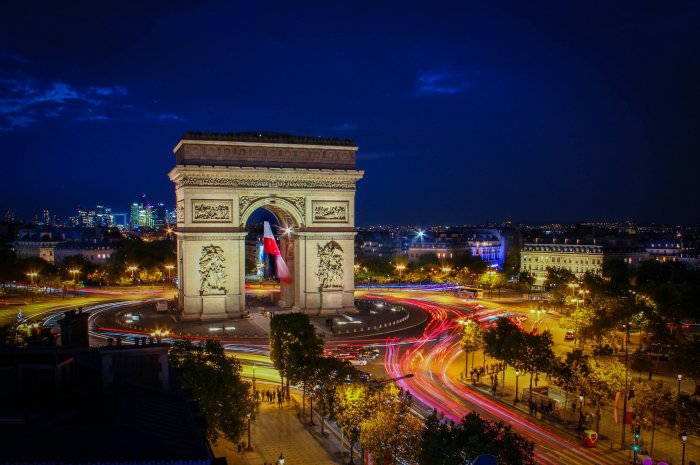
Petty Crime and Scams
Travelers are often concerned about falling victim to scams and fraud while visiting a foreign country. Opportunistic individuals may take advantage of the influx of tourists during the Olympics to engage in fraudulent activities such as fake ticket sales, pickpocketing, or identity theft. Looking and acting like a tourist can produce assumptions that you are inexperienced, naive, lacking cultural awareness, and wealthy.
“Standing out as a tourist can make you appear vulnerable and an easy target for scams, pickpockets and other types of crime,” said Harding Bush, a former Navy SEAL and associate director for security operations at Global Rescue “By blending in you reduce the risk of local criminals or scam artists spotting you as a foreign traveler and targeting you for fraudulent schemes or petty crimes.”
[Related Reading: How to Avoid Being a Victim of Crime While Traveling]
Labor Strikes
Labor strikes, public transportation worker disruptions, political unrest and protests are another potential concern for travelers visiting France this summer, whether they’re attending the Olympics or not. Civil unrest, demonstrations, or worker walk-outs can disrupt local services, transportation and public safety. Travelers may get caught in the middle of a volatile situation or face travel disruptions due to labor strikes or political instability.
Global Rescue issues travel alerts, also called event reports, to inform members of incidents in their travel area that could affect their trip, cause an inconvenience, put them at risk of physical harm, or potentially leave them stranded, said Kent Webber, senior manager of Intelligence Products & Services at Global Rescue.
“We run a virtual 24/7/365 Intelligence Watch that combs the internet for information relevant to travelers. We typically publish 30 to 40 travel alerts in 24 hours,” Webber said. “Some alerts are continually updated.”
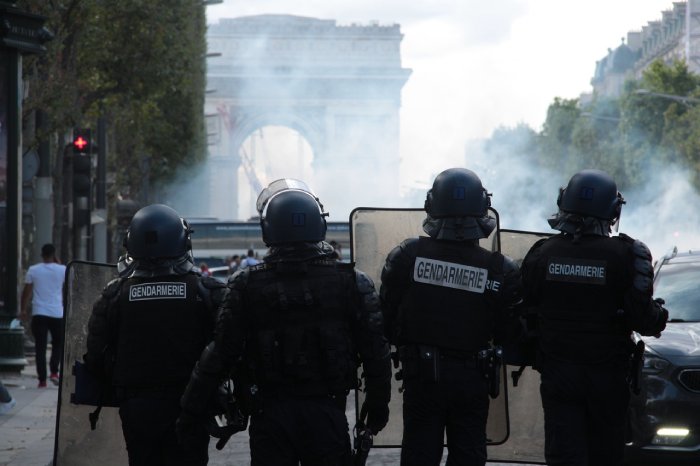
Terrorism
One of the biggest traveler dangers and fears for any major international event like the Summer Olympics is safety and security. With the threat of terrorism looming globally, there is a significant concern for the safety of both athletes and spectators. France has experienced terror attacks in recent years, which raises the fear of a potential security incident during the Olympics.
French authorities recently arrested a Chechen national “suspected of plotting a terrorist attack targeting soccer matches during this summer’s Olympic games in Paris, as France remains on its highest level of security alert amid global tensions ahead of the games,” according to a news report.
French officials are not relying on their security forces to prevent terror attacks. Officials have “asked its foreign allies to send several thousand members of their security forces to help guard the Paris Olympics,” according to news outlet France 24.
Usual Travel Jitters
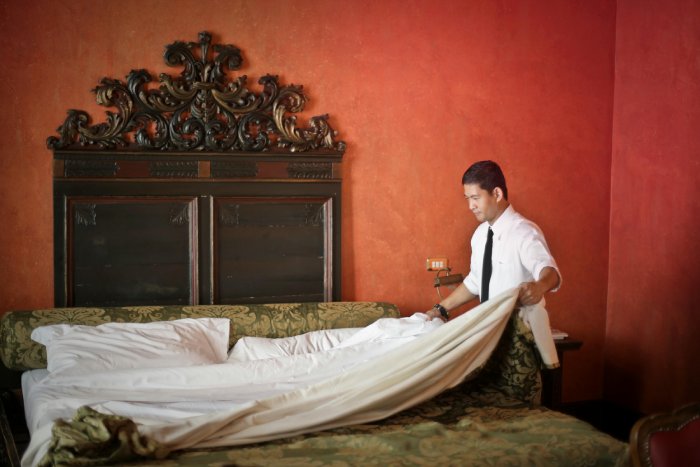
Bedbugs
In France, like in other countries, bedbug infestations can occur in places where there is a high turnover of people and frequent travel, such as hotels and accommodations popular with tourists. Travelers can take precautions to reduce the risk of encountering bedbugs while staying in accommodations in France by following the five tips below:
- Inspect the bed and surrounding area for signs of bedbugs, such as dark spots on the mattress or bed frame.
- Keep luggage off the bed and elevated on a luggage rack or stand.
- Wash clothes in hot water and dry them on high heat after returning from a trip.
- Use protective mattress covers and keep belongings organized to reduce hiding spots for bedbugs.
- Report any signs of bedbugs to the hotel or accommodation staff immediately for proper action.
“Paris certainly does have bed bugs. So does Chicago, New York, and every other major city in the world. These bloodsuckers are, unfortunately, everywhere,” reported Vox. While bedbugs can be a concern in France, being aware of preventive measures and staying vigilant can help travelers minimize the risk of encountering these pests during their stay.
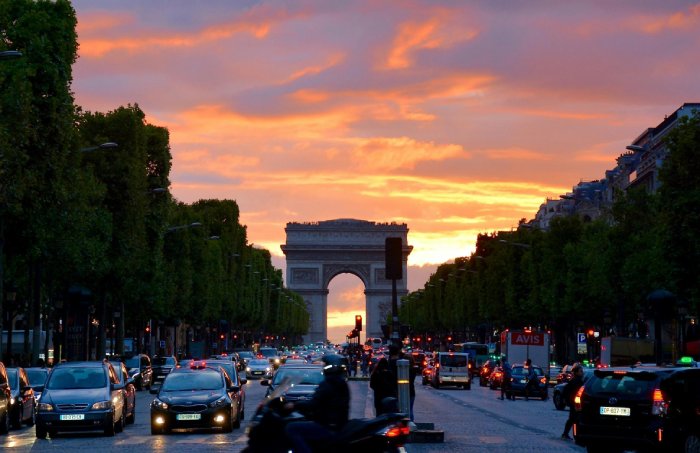
Traffic, Traffic, Traffic
Travelers attending the Olympics concerned about transportation will likely experience challenges. Navigating crowded public transportation systems, dealing with traffic congestion, and ensuring timely arrival at event venues can be stressful for visitors. Additionally, language barriers and unfamiliarity with the local transportation infrastructure can add to these headaches.
The Olympics will test the famous Paris sub-terranean metro system. “Long the envy of other cities, Paris’ creaking underground metro system has become a subject of daily frustration for users just as the French capital gears up to host this year’s Olympics,” reported France 24. “Many metro employees were furloughed [due to the pandemic] and never returned to jobs, while the training of new staff to replace them slowed significantly.”
According to the report, vast improvements have been achieved. “The challenge is not so much the volume of travelers – overall traffic is expected to be no higher than a normal working day – but it is the peaks in demand as fans enter and leave stadiums.”
Alternatively, there’s the Paris bus system, which has the added benefit of enabling passengers to see the city as they travel to their destination. Bus stops are everywhere, with buses numbered to represent the line they’re traveling. “Stations often have screens that indicate how long the wait is for the next bus. Like the metro network, you will need to know your destination to determine the line, and you may have to change buses,” advised Nerd Wallet.
The RER commuter rail system may be less reliable during the Olympics due to labor disruptions. Paris train drivers may go on strike if officials don’t meet their financial demands during the Olympics. Train drivers conducted a work stoppage in May 2024, reducing the number of trains in service by 80%. “The months leading up to the Olympics have already been marked by strikes and threats of industrial action during the Games,” reported Radio France Internationale.
Driving around Paris will be dicey due to planned road closures, especially near landmarks. “As Paris prepares to host the Olympic Games the city has started shutting down certain roads and bridges to vehicles. The primary areas affected are around the Eiffel Tower, Champ-de-Mars and Trocadero, as well as the Place de la Concorde and Les Invalides and Alexandre III bridge,” according to The Local, a French news outlet.
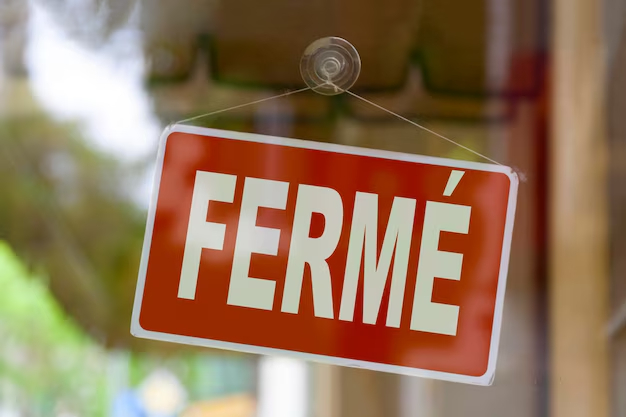
Hotel Shortages and Restaurant Disruptions
During a typical summer, many businesses close for long periods, often taking the entire month of August off. Past visitors to Paris in late July and early August “usually find many small businesses closed as their owners head out of town on their summer holidays,” reported the New York Times.
But the summer of 2024 may be different. Many restaurant owners and other small business proprietors are remaining in town, keeping their shops and eateries open in the hopes of capitalizing on the potential business from Olympics visitor traffic in the city for the Olympics. According to the article, “If you’re traveling to Paris for the Olympics or Paralympics, you will most likely find more dining and shopping options than you would otherwise see at that time of year.”
Finding suitable and safe accommodation during the Olympics may be a significant, and expensive, concern for travelers. With a surge in demand for lodging, issues with availability, pricing, and quality of accommodations are already widespread. “Many hotels and rental apartments have doubled or tripled their typical summer rates (think an average of €1,000 a night instead of €300), and some have even quintupled them,” reported the New York Times. Travelers may need to overcome overbooking, last-minute cancellations, or substandard facilities.
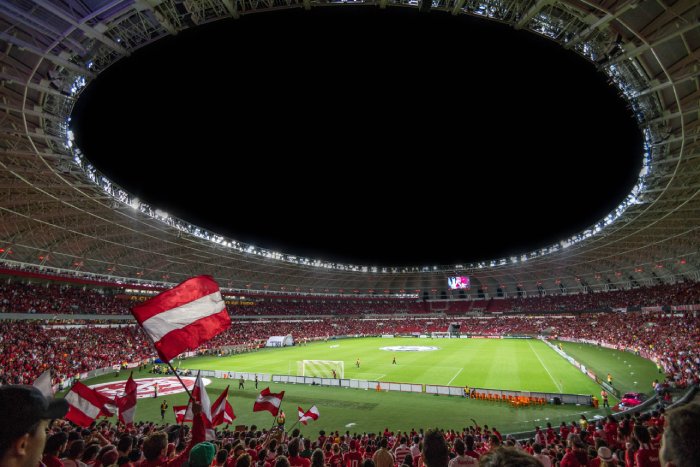
Stadium Safety
If you made plans to attend a stadium event, learn the five safety tips in case things go wrong, like losing your child or violence breaking out among fans.
First, in advance of the event, save a map of the venue on your phone and identify the exits, where you’re sitting and transportation location. Choose three meeting points for the group if you should get separated: two inside and one outside.
Next, outfit yourself for the unexpected. Wear or bring comfortable shoes in case you need to walk a long distance or run. Fully charge your phone in advance of the event and bring a portable charger with you. If you’re traveling with small children, attach an AirTag to their ankle with a bracelet. If they get lost, you can check their location on your phone.
Third, keep group or family members close. Tell others in the group that you’re leaving and be specific. For example, “Jane and I are going to get another Merguez Sandwich from the vendor outside seat block Z9. We’ll be back in 20 minutes and have our phones. We’ll let you know if we get delayed.”
Fourth, in the event of an emergency, unless you’re in imminent danger, stay where you are and take all instructions from competent authority. Avoid rushing to an exit and getting caught up in a large and panicky crowd. If you’re forced into a crowd, attempt to stay near a wall and walk purposefully.
Finally, throughout the event stay attuned to your immediate surroundings. This will help you stay alert to notice if things seem off or if the worst-case scenario happens.
[Related Reading: Crowd Control: How to Be Stadium Safe at the World’s Biggest Events]
If violence breaks out, resist the temptation to draw closer to a disturbance to see what’s happening. “We always advise to avoid all areas of demonstration and unrest,” Bush said. “Don’t engage, go the opposite direction and, since you already have situational awareness and know where the authorities are, alert them to the issue.”
Visitor Concerns Based on National Nuances
There can be differences in perceptions and priorities based on the nationality of the traveler when considering the concerns of those attending the Summer Olympics in France.
Americans may have heightened concerns about safety and security due to the global terror threat and past incidents in Europe. The fear of terrorism and mass shootings could be more pronounced for American travelers. Given recent political events and civil unrest in the U.S., travelers from there may be more sensitive to political instability and protests in France. While English is widely spoken in France, American visitors may struggle with language barriers and communication challenges, especially in more rural areas.
South Americans may have heightened concerns about safety and security in France. The fear of crime, especially petty theft and scams targeting tourists could be more prevalent. Visitors from South America may worry about visa requirements and immigration procedures. They may also worry about potential discrimination or difficulties at border crossings.
Europeans outside of France may be less concerned about transportation challenges due to their proximity and familiarity with the region. Their concerns about accommodations are likely much lower compared to travelers from other continents since they are more familiar with booking processes and standards. Communication may be easier for European travelers since they are more likely to speak French or other languages.
Always Have Travel Protection
Whether you’re traveling to the Olympics in France, a music festival in Brazil, or any other major event in an unfamiliar destination, you should hope for the best travel scenario — but prepare for the unexpected by purchasing a travel protection membership and travel insurance.
The two services fulfill different travel needs. Travel insurance is designed to provide financial reimbursement for trip interruptions and medical insurance coverage. A travel protection membership, like Global Rescue, provides emergency field rescue, medical evacuation and transport, and medical advisory services at no additional cost.
When combined, you can be confident knowing you’re traveling with the ultimate safety net: emergency field rescue from the point of illness or injury, evacuation services, travel advisory and financial protection. That’s why Global Rescue works with leading insurance providers to connect you to a travel insurance policy that includes Cancel for Any Reason (CFAR) benefits, based on your home location.







